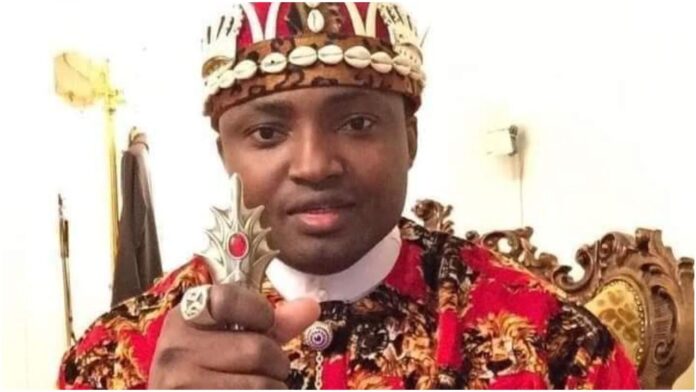By: Joy Musa
In a landmark decision with far-reaching geopolitical implications, a Finnish court has approved the extradition of Simon Ekpa, a Finnish-Nigerian political activist and separatist leader, to Nigeria to face multiple terrorism-related charges. The Päijät-Häme District Court in Lahti issued the ruling on April 18, 2025, setting the stage for Ekpa’s transfer to Nigerian authorities on July 15.
Ekpa, who rose to prominence through his controversial leadership of the self-proclaimed Biafra Government-in-Exile, has long been accused of inciting violence in Nigeria’s southeast. His inflammatory rhetoric and enforcement of deadly “sit-at-home” orders have drawn the ire of the Nigerian government and human rights groups alike.
He was arrested by Finnish authorities in November 2024 following an extensive surveillance operation. The charges against him stem from his alleged orchestration of violent activities through social media and his leadership of the so-called “Autopilot” faction, which is reportedly linked to the Biafra Liberation Army (BLA)—a group accused of widespread violence, including kidnappings and targeted assassinations.
Although frequently identified as a factional leader of the Indigenous People of Biafra (IPOB), the organization has publicly disavowed him, labeling him a “rogue agitator” and distancing itself from his activities. IPOB maintains that Ekpa’s actions have undermined the broader pro-Biafran movement and inflicted harm on the very communities he claims to represent.
Upon arrival in Nigeria, Ekpa is expected to face charges including terrorism, conspiracy, incitement to violence, and crimes against the Nigerian state. Legal experts predict the trial will become one of the most high-profile proceedings in Nigeria’s recent history, with heavy media coverage and intense scrutiny from international observers and human rights organizations.
The Nigerian government has hailed the Finnish court’s decision as a victory for justice and a significant step in curbing transnational extremism. However, Ekpa’s legal team has signaled plans to appeal, citing concerns over his safety and the potential for political persecution in Nigeria.
As the extradition date approaches, the case continues to spark debate across diplomatic, legal, and activist circles—raising questions about the responsibilities of diaspora actors, the reach of national laws in the digital age, and the balance between national security and human rights.







